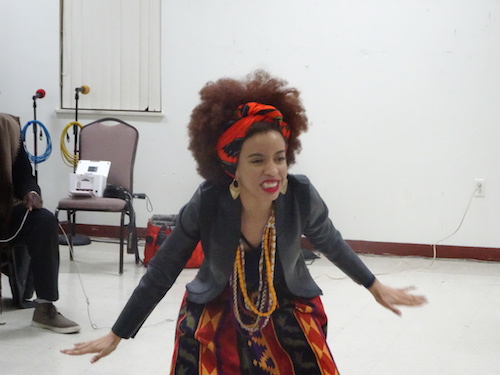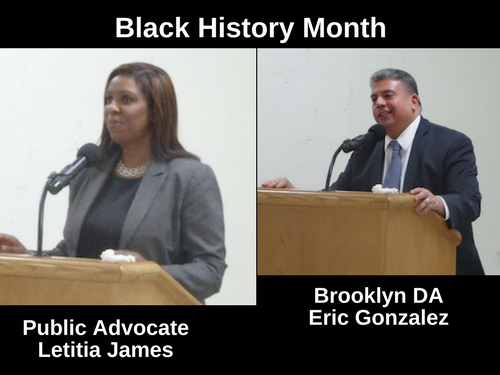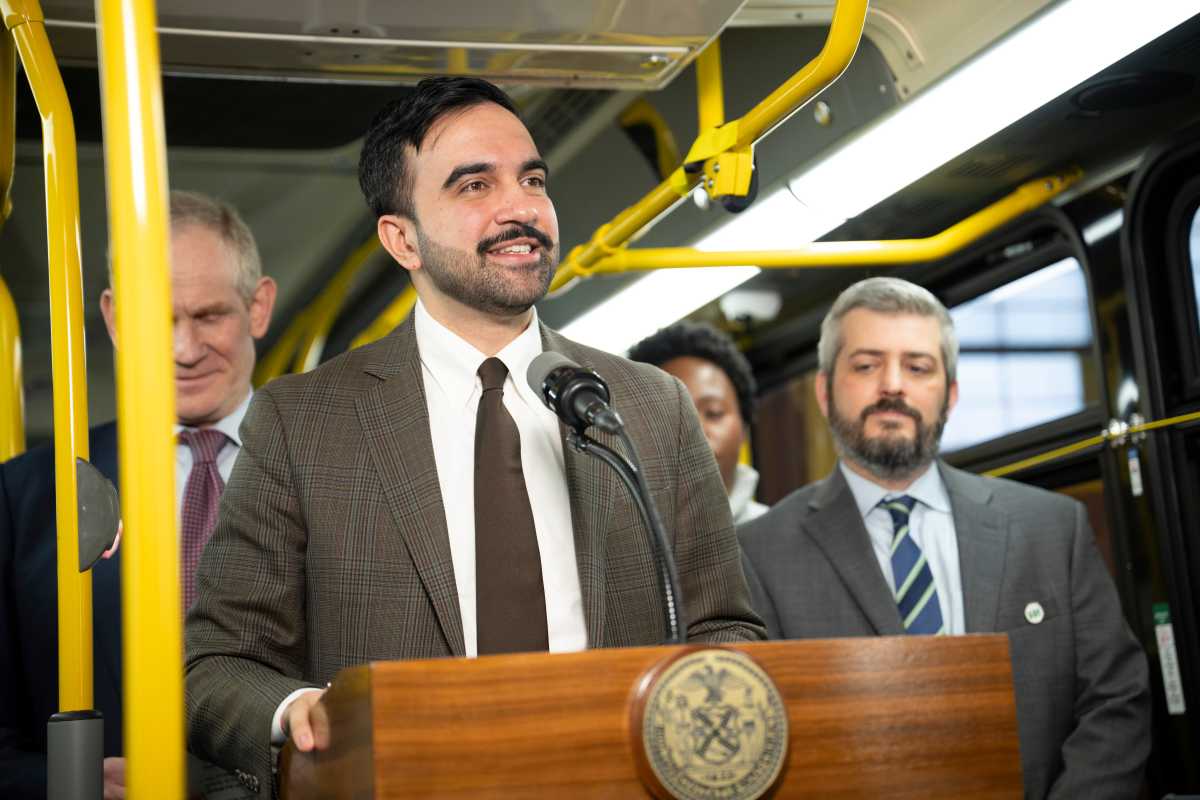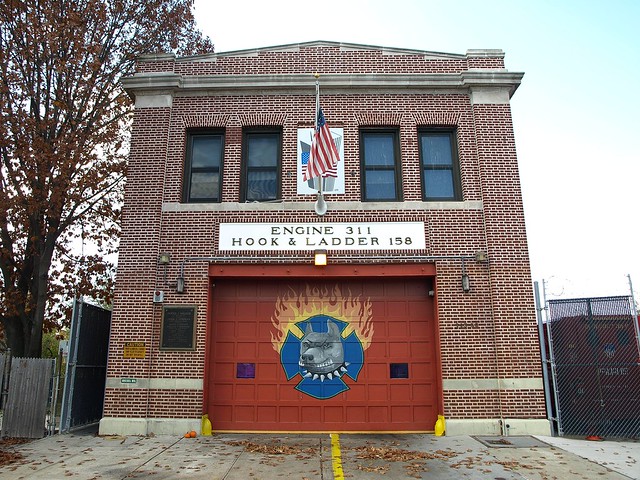The Atlantic Terminal Tenants’ Association hosted the fourth annual Black History Month Event last Saturday, in conjunction with the New York-based nonprofit Amida Care.
The event, which was free and open to the public, featured speeches from Brooklyn electeds and activists such as Public Advocate Letitia James and Brooklyn District Attorney Eric Gonzalez, and performances from African-American artists, musicians and dancers. It was created as both a way to showcase the talent of Brooklyn’s black community, and to educate attendees about their African heritage and the bigotry their people still face.

“We’re celebrating Black History Month, but the reality is that black history is something we live through every day,” said James, the first African-American woman to hold citywide office in New York. “We’ve got to stand against this ignorance and hold our children down; summon the power of Sojourner Truth, summon the power of Shirley Chisholm, and teach our children about their legacy, but more importantly, we have to remind them about the dignity of our spirit.”
Some of the artistic performances that evening were fueled by similar feelings of indignation of passion. The spoken word artist Karma Mayet Johnson, also known as “Firestarter”, spoke of her memory of being victimized during a violent, racially charged demonstration by off-duty NYPD officers.
“Before I looked for shelter, I rationalized the situation; I’m a taxpaying, law-abiding citizen with a college education,” said Johnson. “I go to church on Sundays, I’m on the PTA, I’ve served on jury duty and I vote on Election Day! ‘I’m innocent!’ I thought, as I began to look for shelter. They [the cops] didn’t seem to care; all they did was Helter Skelter!”
But black oppression wasn’t the only theme explored that evening; other performances served to celebrate African contributions to the arts and sciences. The Brooklyn Love Institute of African Drummers and Dancers, lead by Ralph Sanders, demonstrated how a drum can be used as a tool to teach math and spelling, with drum beats being used to signify numbers, letters and equations.

Still others focused on the uplifting themes of black pride and solidarity. Actress and playwright Cherie Danielle performed a monologue about “melanin heaven”, an afterlife exclusive to those with dark skin, signifying her dream of a world in which her skin color earns her adulation instead of discrimination.
“If you’re any shade of brown, from yellow to caramel to delicious chocolate to that deep dark purple-blue-black and unashamed of it, baby, you’re welcome up there, in melanin heaven,” said Danielle. “You kept faith in all that you believed in, and most of all, you stayed true to your people, in spite of the powers of a system that worked overtime to keep you down, honey!”
There was also ample time devoted to recognizing the accomplishments of history’s most prominent black activists. The event included a spirited performance of “The M Squad”, a play that had five black actors and actresses speaking as the “ghosts” of iconic leaders like Martin Luther King and Malcolm X. Each actor delivered a monologue that had them recounting their accomplishments and providing commentary on the modern political climate.
But activist and keynote speaker Colia Clark made sure to remind attendees to recognize not just the power that their ancestors and progenitors had, but also the power that they themselves have. Near the end of the evening, Clark delivered an impassioned speech directed at the black youth of Brooklyn, beckoning them to realize that the potential to earn reparations for the community and cause social change ultimately lies with them.
“Old folks don’t fight wars – never have, and never will,” said Clark. “You’ve got to organize, baby, and you can do it. Organize yourselves into unions, and ask for anything you want… the power’s with you.”










